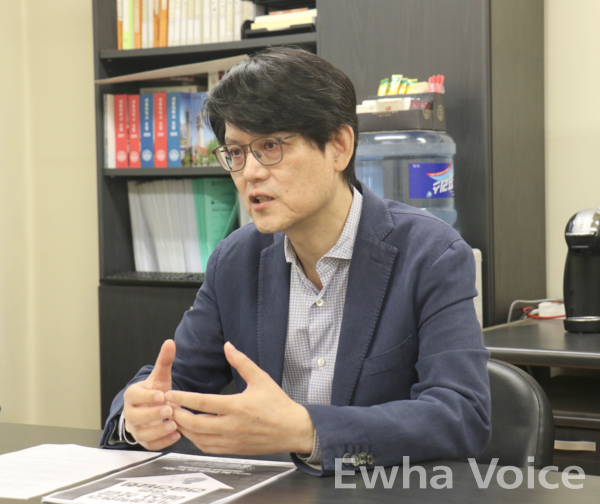On July 22, the Ministry of Science and ICT announced a 3.4 trillion won reduction in the research and development (R&D) budget. The budget has been slashed by more than 16 percent, while the overall national budget has seen a three percent increase. The Ministry of Science and ICT explained that the decision was made after abolishing projects yielding low-performance and those merely receiving subsidies. These issues have raised concerns, especially since the cuts came abruptly. In recent years, South Korea has been allocating hefty sums to science research. In 2022, about 4.9 percent of the country’s GDP was invested, while the United States allocated 2.6 percent of its GDP in the same year.
Unlike South Korea’s case, most other OECD countries will see increases to their R&D funding in the coming year. According to a report issued by the Congressional Research Service of the United States, the United States will assign 209.7 billion dollars for R&D in the 2024 fiscal year, which is an increase of 8.9 billion dollars since that of 2023. In a similar move, the Ministry of Economic Affairs and Employment of Finland proposed a 92-million-euro increase to the budget authority for supporting research, development, and innovation activities in 2024, which will bring the total investment to 528 million euros.
What does this dramatic change mean specifically and what kind of outcome will it bring?

Professor Seung-Hyun Chun, from the Department of Physics & Astronomy at Sejong University explained that although such a reduction and reallocation may be understood as a restructuring of the R&D budget, the decision made in a mere two months raises serious concerns for basic research.
The Directorate for Basic Research in Science & Engineering under the government-funded National Research Foundation of Korea is divided into two main programs: Individual Research and Group Research. Most professors and student researchers are classified under the former.
Within the Individual Research, Professor Chun pointed out the flaws in the government’s decision to axe funding for small- to medium-scale research projects.
Under the government’s assessment, more competitive research projects are funded with additional money within the budget. These projects are classified as large-scale research projects. The small- to medium-scale projects, on the other hand, receive less funding from the government.
Professor Chun emphasized that the absence of small- to medium- scale projects will mean restriction of research opportunities for many researchers.
“As a matter of fact, there are many researchers that conduct research requiring only a small amount of fundings,” he said. “With the rejection of funding for such projects, however, they will be left with no choice but to exaggerate their research topics and, accordingly, the required budget to do their research.”
Professor Chun described the consequences of the plan in the long run as a competition for project funds among the surviving half. He explained that if every researcher were to gravitate towards large- scale projects under a limited and even reduced budget, the “non- surviving” researchers with no projects would slowly leave the scene.
“Not everybody will get funding for the large-scale projects,” he said. “With the pie shrinking yet sliced into bigger chunks, not everybody gets to do their research.”
A healthy research environment is the question on the table. With fewer researchers left in the field, Professor Chun explained there needs to be a more even distribution of the research budget. According to Professor Chun, a good case of such distribution is found in the National Science Foundation (NSF), a federal agency in the United States that supports fundamental research in the fields of science and engineering.
The distribution of funds in the NSF is unequal among research projects, with the most competitive ones receiving more funding. However, the agency ensures that researchers in small-scale research projects proceed with their research by providing a guaranteed minimum amount of government funding.
Such distribution is important, whether large or small in scale, to ensure that research projects are able to proceed, contributing to a successful research environment.
“What the Korean government has done is encourage a win-or-lose competition among researchers,” Professor Chun said. “This structure will eventually result in nothing but the collapse of the entire research community.”

Kang Dong Jae, the president of Korea Advanced Institute of Science and Technology (KAIST)’s student council, took part in announcing a statement against R&D budget cuts to make the voices of university students heard. The statement was published in solidarity with KAIST and representative universities including Seoul National University, Korea University, Yonsei University, and Ewha Womans University.
“The reason why the statement was issued in cooperation with other universities and graduate schools was that it was necessary to make a statement at the level of the public sector,” Kang explained. “I consider the reduction of the R&D budget in science and technology an issue that affects us on a national level beyond KAIST.”
At KAIST, graduate school students, who are known as incumbent researchers, conduct research cooperatively with government-funded research institutes and private corporations. Undergraduate students take part in the Undergraduate Research Program, a program hosted by KAIST where students conduct research or hold seminars under the supervision of professors.
KAIST encourages undergraduate students to be actively involved in research activities when professors’ or research centers’ cooperation can be obtained. Kang asserted that such a budget cut jeopardizes the research environment and deter laboratories from generating research outcomes,eventually restricting students’ research opportunities.
As a university centered in science and technology, the majority of KAIST students major in science and engineering. It is not surprising that most students wish to build a career in the scientific technology industry.
“Stability is one of the key factors when choosing a career,” Kang said. “If such situations keep happening, it is inevitable that students will find this industry lacking stability. This can lead to a decline in students who wish to become scientists and may result in avoidance of the natural sciences and engineering fields.”
As such, Kang’s utmost concern is that the budget cut will be a bottleneck for students to undertake challenging research.
Expressing his hopes for government intervention, Kang discussed how creative research can only be achieved through thorough investigation and investment backed by sufficient financial support and without the need to worry about the lack of budget.
“Some say the cuts are aimed at reducing unwarranted costs and saving inefficiently wasted budgets,” Kang said. “To address these issues, I think the right direction is not to reduce the overall budget, but to create a system to prevent it, such as strengthening the screening step in the process to avoid incurring unnecessary costs.”
Kang also cited the need for the government to fully discuss the content with associated parties, rather than unilaterally announcing the government’s will in the decision-making process. If the government decides on policies in such a one-sided way, policies will be made without the input of the science and technology field, and as a result, scientists are not guaranteed stability in their working environment.
Experts from around the world showed their concerns as well. A Nobel Prize winner George Smoot, also a professor at Hong Kong University of Science and Technology, emphasized the importance of investing in the basic science field for the sake of economic growth, pointing out how the South Korean economy has developed without much natural resources.
Joachim Frank, another Nobel Prize winner and a professor at Columbia University, was not convinced if the reduction would bring better outcomes. He thinks investing in education and science for the future matters the most.

